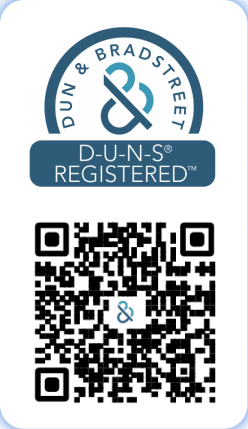If you are a 12th pass student who is confused about which course to choose, if you are being forced to choose the program Sharma Ji Ka Beta is doing, or even if you lack guidance on what is currently trending in the industry, this blog is going to help you in all cases.
After you have completed your 12th from any stream, the first thing that you will encounter from relatives, neighbors, and even your parents is, “aage kya socha hai beta,” and the worst part is not that they ask you this right after your exams, it is that you have not even thought about this once yet!
Well, it's never too late! That being said, let’s guide you on a trending UG course in the industry, BCA. In this post, you will specifically read about what is taught in this program and how the program has been structured in 2026.
The Bachelor of Computer Applications (BCA) degree is a three-year undergraduate curriculum focusing on computer science and its applications. Through this program, you will graduate with a solid foundation in computer science, programming, and software development. To explore the curriculum, subjects, books, specializations, important points, employment chances, overview, entrance test, and syllabus of BCA, read this post till the end.
What is BCA exactly?
Bachelor of Computer Applications is abbreviated as BCA. The three-year undergraduate curriculum focuses on computer application ideas and their actual implementations. The curriculum is designed to provide students with a solid computer application foundation and prepare them for a future in the ever-changing IT sector.
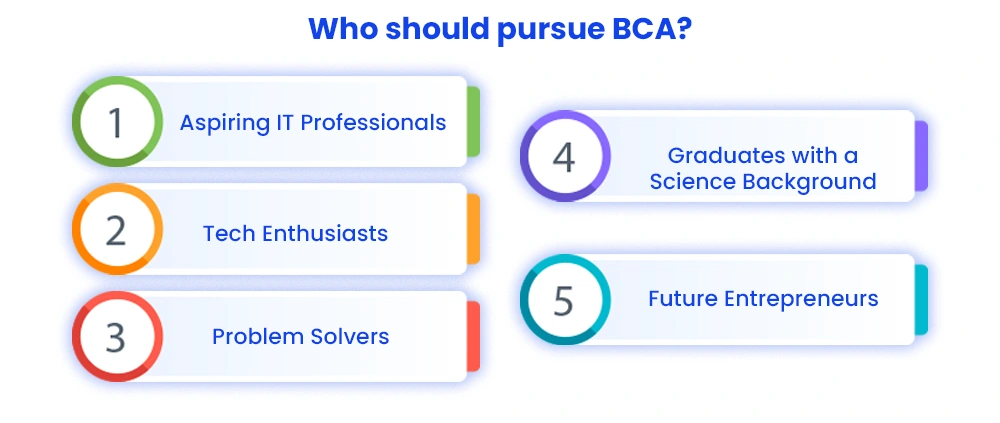
The BCA curriculum includes programming languages, database administration, networking, web development, software engineering, and computer architecture. Students also gain practical experience creating software programs, websites, and database systems. The course integrates theory and practice in computer applications to provide students with the knowledge and abilities required to meet the needs of the IT sector.
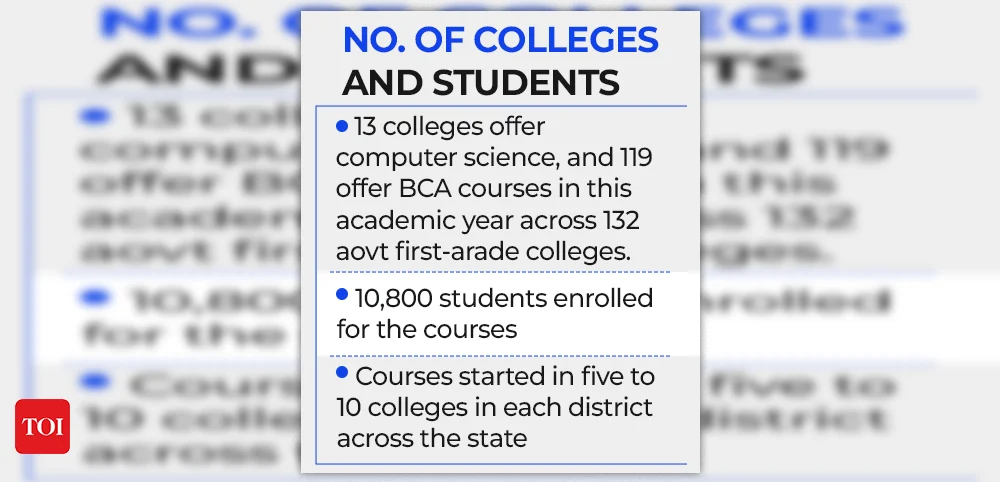
| BCA Courses | |
| - | |
BCA is a fantastic alternative for people who want to work in the information technology sector. BCA graduates can work as software developers, database administrators, network administrators, system analysts, web developers, and other IT-related positions. The degree also serves as a solid basis for furthering one's education, such as an MCA (Master of Computer Applications) or an MBA in Information Technology.
BCA Syllabus or BCA Course Subjects
The BCA (Bachelor of Computer Applications) program is intended to give a solid foundation in computer science and application development. The curriculum varies widely among universities. However, it commonly includes the following subjects:
| BCA Syllabus or BCA Course Subjects | |
|
Programming Languages: C, C++, Java |
Database Management Systems (DBMS) |
|
Data Structures |
Computer Networks |
|
Operating Systems |
Software Engineering |
|
Web Technologies |
Object-Oriented Programming (OOP) |
|
Computer Architecture and Organization |
Mathematics for Computer Science |
Most universities offer electives in areas such as Artificial Intelligence, Machine Learning, Big Data Analytics, Cloud Computing, and Cyber Security in addition to core subjects.
The BCA curriculum is intended to provide students with a solid foundation in both theoretical and practical elements of computer science. Therefore, it is frequently updated to reflect the most recent developments and advancements in the area.
Let's Take a Look at the Year-wise BCA Syllabus
1) BCA Course subjects in 1st Year
The BCA course syllabus is delivered in a semester-based format. In the first year, semesters 1 and 2 are covered with a specific subject list that varies from university to university. The first year generally covers some common topics that you have also studied in your 12th grade, but here, these will be taught in more depth.
Here is a list of the subjects that are taught in the 1st year of BCA at most of the universities, but these might change, specific to your university:
|
BCA Subjects 1st Year Semester 1 |
BCA Subjects 1st Year Semester 2 |
|
Computer Fundamental |
C Programming |
|
Principles of Management |
Organisation Behaviour |
|
Programming Principles & Algorithms |
Digital Electronics & Computer Organization |
|
Mathematics- I |
Mathematics- Il |
|
Business Communication |
Financial Accounting & Management |
|
Computer Laboratory and Practical Work: Programming Principles & Algorithm |
Computer Laboratory and Practical Work of C Programming |
|
Computer Laboratory and Practical Work of Office Automation |
- |
2) BCA Course Subjects in 2nd Year
The second year of the BCA course is more advanced than the 1st year and makes you go through some practical-oriented course topics.
|
BCA Subjects 2nd Year Semester 3 |
BCA Subjects 2nd Year Semester 4 |
|
Database Management Systems |
Web Designing |
|
Open Source Technology |
Data Structures |
|
Software Engineering |
Introduction to Linux |
|
Web-Based Applications |
Object-Oriented Programming |
|
DBMS and Web Technology Lab |
Elective |
3) BCA Course subjects in 3rd Year
The third year of the BCA course is quite advanced and makes you learn some latest additions in the field, like Artificial Intelligence and Machine Learning. This way, you will be able to understand the current trends in the IT sector.
|
BCA Subjects 3rd Year Semester 5 |
BCA Subjects 3rd Year Semester 6 |
|
Software Engineering – II |
Artificial Intelligence |
|
Java Programming |
Information Security |
|
Python Language |
Application Development |
|
E-commerce and Marketing |
Advanced Java and Python Lab |
Core BCA Course Subjects
Though there are numerous subjects that you will study throughout the program, the following are some of the most important BCA course subjects:
- Fundamentals of Computers
- C Programming
- Operating Systems
- Multimedia Systems
- Understanding Organisational Behaviour
- Data and Database Management Systems
- Web-Based Application Development
- Computer Lab and Practical Work
Thus, when you are opting for a BCA degree from any college, you must look for these subjects in that curriculum.
BCA Syllabus 2026: Elective Subjects
Elective subjects in the BCA syllabus are add-on topics that you will study in addition to the core BCA subjects. These electives are chosen based on your interest from a list of subjects pre-decided by the university for every semester.
Some of the electives that you will encounter at most of the universities include:
- Animation and multimedia
- Music and Video Processing
- Web Designer
- Accounting Applications
- Internet Technologies
Why Should You Pursue A BCA Course Online Rather Than on Campus?
- Pursuing a BCA Course online allows you to study at your own speed and convenience, allowing you to mix your studies with other responsibilities.
- Online BCA course syllabi from reputable universities give access to high-quality education, which experienced faculty members and industry professionals frequently deliver.
- Online platforms include various learning tools, like video lectures, e-books, interactive modules, and discussion forums, to help you better comprehend BCA themes.
- The online BCA syllabus emphasises practical skill development through hands-on programming exercises, projects, and simulations, preparing you for real-world difficulties.
- Virtual learning environments allow you to interact with other students, instructors, and IT professionals, increasing your network and developing partnerships.
- Compared to traditional on-campus courses, online BCA programs sometimes feature cheaper tuition, making it a cost-effective choice for pursuing higher education.
- A BCA degree opens the door to various employment prospects in the IT industry, such as software development, web design, database administration, and system analysis.
- Online BCA programs provide individualised learning experiences that allow you to concentrate on areas of interest, proceed quickly, and explore extra resources for in-depth comprehension.
- You may access course materials and lectures from anywhere with online learning, eliminating the need for geographical boundaries and putting education at your fingertips.
Online BCA Course Versus Regular BCA
|
Parameters |
Online BCA |
Regular BCA |
|
Learning Mode |
Receive online notes, online video lectures, and assignments to prepare for the exams. |
Visit the college for lectures and practical sessions regularly |
|
Level of Flexibility |
Study from anywhere |
Includes a fixed schedule |
|
Course Fees |
Quite affordable for students |
An offline learning model is costly |
|
Type of Industry Experience |
Tie-ups of universities with top companies offer students the best industry training while pursuing the online BCA. |
After clearing the exam in college, get internships and campus placements |
Is the Online BCA Course Syllabus the Same As the On-Campus BCA Syllabus?
Yes, the online BCA course syllabus is intended to be the same as the on-campus syllabus. The key concepts and topics studied in the online BCA program are often the same as those taught on campus. The program is designed to give students a thorough grasp of computer science and its applications.
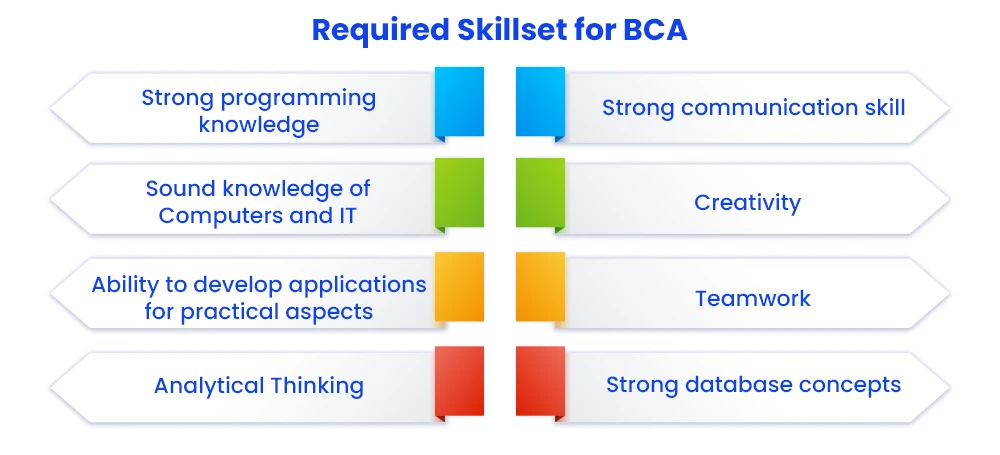
While the distribution mechanism in online learning may alter, the content and learning results remain similar. Online BCA programs frequently feature interactive modules, virtual laboratories, video lectures, and discussion forums to support successful learning and participation. Students access the same study materials, assignments, and evaluations as the on-campus program.
Top BCA Course Specializations
Some popular Online/On-Campus BCA specialities include:
- BCA in Computer Science and IT: The Bachelor of Computer Applications (BCA) in Computer Science and IT is a speciality within the Bachelor of Computer Applications degree. It focuses on giving students a thorough knowledge of computer science theory as well as practical information technology abilities. Programming languages, data structures, algorithms, computer networks, software engineering, database management, web development, and cybersecurity are all covered in this area.
- BCA in Cloud Security: BCA in Cloud Security specializes in cloud computing and security ideas and techniques. This specialty is intended to provide students with a thorough grasp of cloud technologies and how to deploy them securely. Cloud computing ideas, virtualization, cloud service models, cloud deployment methods, and cloud data storage will all be covered. They also learn about security protocols, encryption strategies, access control, and risk management in cloud systems.
- BCA in Artificial Intelligence: BCA Artificial Intelligence is a course that focuses on artificial intelligence (AI). This specialization is intended to equip students with a solid foundation in artificial intelligence technology, algorithms, and applications. You will learn about machine learning, natural language processing, computer vision, and robotics, among other topics. They study the ideas and techniques behind intelligent systems and how AI might be utilized to solve complicated issues and improve decision-making processes.
- BCA in Cyber Security: BCA Cyber Security is a cybersecurity-focused specialist curriculum intended to provide students with the information and skills needed to safeguard computer systems, networks, and data from unauthorized access and threats. You will learn about various cybersecurity ideas, tools, and best practices. They look at network security, encryption, ethical hacking, incident response, and security management, among other things. Students gain competency in implementing security measures, detecting vulnerabilities, and managing risks via hands-on instruction and practical activities.
- BCA in Data Analytics: This specialization focuses on data analytics. It is intended to provide students with the knowledge and skills needed to analyze and understand huge amounts of data to extract useful insights and assist decision-making processes. You will learn about various data analysis techniques and technologies, including statistical analysis, data visualization, and predictive modelling. They learn computer languages like Python and R, which are frequently used in data analytics.
- BCA in Mobile Application Development: This program focuses on designing and developing mobile applications for various platforms, such as Android and iOS. It provides students with the information and skills to design creative and user-friendly mobile applications. Programming languages and frameworks such as Java, Kotlin, Swift, and React Native are taught in the BCA Mobile Application Development curriculum. They obtain knowledge of mobile app development tools and technologies, such as app design, user interface development, and functional integration.
- BCA in Cloud Computing: BCA Cloud Computing focuses on cloud computing concepts and technology. It provides you with the knowledge and abilities to design, implement, and manage cloud-based systems and services. You will study cloud computing through virtualization, storage systems, networking, and security. You will get firsthand knowledge of central cloud systems such as Amazon Web Services (AWS), Microsoft Azure, and Google Cloud Platform.
- BCA in Web Development: The Bachelor of Computer Applications focuses on the skills and techniques necessary for designing and creating websites and online applications. Students in the BCA Web Development program study programming languages, including HTML, CSS, and JavaScript, as well as server-side scripting languages like PHP or Python. They acquire hands-on expertise in front-end and back-end web programming, including creating interactive user interfaces, database management, and implementing web security measures.
- BCA in Game Development: This specialization focuses on the skills and knowledge essential for designing and building interactive games. You will learn about the fundamentals of game design, game programming, game art, and game mechanics. You will even acquire hands-on experience with game creation tools and technologies such as Unity and Unreal Engine.
BCA Course Key Highlights
Here are some of the key benefits of pursuing a BCA degree:
- Industry-related Curriculum: The BCA curriculum is intended to offer students a solid foundation in computer applications, programming languages, software development, and other relevant courses. The curriculum is revised regularly to reflect the most recent industry trends and needs.
- Focus on Practical Skills: BCA courses highly focus on hands-on learning and developing practical abilities. Students are educated in various programming languages, software tools, and applications to guarantee they can excel in the field.
- BCA is normally a three-year undergraduate degree with six semesters.
- BCA costs vary based on the institution or university. However, they typically range between INR 50,000 and INR 2,00,000 each year.
- Candidates must have finished their 10+2 education from any recognized board with a minimum of 50% aggregate marks to apply for BCA.
- In India, the average income for BCA grads is about INR 3-4 lakh per year. It can, however, differ based on criteria such as job description, employer, and geography.
BCA Books and Course Material
In addition to the course books, some of the best ones that a BCA pursuant should go through in their course duration are listed below. These books are recommended by the highly qualified professors or tech professionals who have been a part of a BCA program in their lives.
|
Name of the Book |
Name of the Author |
|
A Textbook on C: Fundamentals, Data Structures, and Problem-Solving |
Karthikeyan |
|
The C Programming Language |
Brian W Kernighan |
|
Data Structure Using C |
A K Sharma |
|
Operating System Concepts |
Avi Silberschatz and Peter Galvin |
|
Design of the Unix Operating Systems |
Maurice Bach |
|
Software Engineering |
Ian Sommerville |
|
Algebraic Methodology and Software Technology |
Grigore Rosu and Jose Meseguer |
|
Fundamentals of Numerical Computation |
G Alefeld and R Grigorieff |
|
Object-Oriented Analysis and Design with Applications |
Booch |
BCA Syllabus 2026: Top Colleges
Numerous colleges, government, and private institutions are offering the BCA course in online and offline modes. Here is a list of the top ones in these two categories:
BCA Syllabus 2026: Top Government Colleges
- PSG College of Arts and Science - PSGCAS
- University of Lucknow
- Nizam College
- Chhatrapati Shahu Ji Maharaj University
- Jamia Hamdard
- BBAU Amethi
- Bangalore University
- J. C. Bose University of Science and Technology, YMCA
- Guru Nanak Dev University
BCA Syllabus 2026: Top Private Colleges
- Amity University Jaipur
- Amity University Noida
- Galgotias University
- Chandigarh University
- Loyola College
- Chanderprabhu Jain College of Higher Studies and School of Law
- Mount Carmel College
- Institute of Management Studies, Noida
- MIT-WPU
- SAGE University, Bhopal
BCA Syllabus 2026: Top Private Online BCA Colleges
The confusion associated with private online BCA universities is whether the degree awarded by them will be credible in the industry or not. Thus, before enrolling in any online BCA college, you must check for its accreditations. Here is a list of the popular and affordable online BCA universities that offer an updated BCA syllabus in 2026 with their approvals.
|
Top Universities for Online BCA Course |
|
|
Universities (Online BCA Course) |
Universities Accreditations |
|
UGC | AICTE | AIU | NIRF | WES | NAAC A++ | QS World University Rankings | AUAP |
|
|
UGC-DEB | AICTE | AIU | NIRF | WES | NAAC A++ |
|
|
UGC | AICTE | AIU | NIRF | WES | NAAC A++ | QS World University Rankings | AUAP |
|
|
UGC | AICTE | NIRF | WES | NAAC A+ | QS World University Rankings | NBA |
|
|
UGC-DEB | NIRF | NAAC A | QS World University Rankings |
|
|
UGC | NIRF | NAAC A+ |
|
|
UGC | AICTE | NIRF | WES | NAAC A++ |
|
|
UGC | AICTE | AIU | NAAC A+ |
|
|
UGC-DEB | AICTE | NIRF | WES | NAAC A+ | ACCA | QS World University Rankings |
|
|
UGC-DEB | AICTE | NIRF | NAAC A+ | ISO |
|
|
UGC | NIRF | NAAC | ISO |
|
|
UGC | AICTE | AIU | WES | NAAC A+ | ISO | PCI |
|
|
UGC | NIRF | NAAC A |
|
Eligibility Criteria for Bachelor of Computer Applications (BCA)
Here are the eligibility requirements one must meet to get enrollment in the BCA program-
- Completed Intermediate (10+2) from an approved school board.
- Qualify for the entrance exam.
- Minimum 50 to 60 percent marks in 10+2 based on the requirements of a particular university.
Additional Details-
- An entrance exam qualification is not required if you are going for the Online BCA.
- The percentage requirement may also not be required by the university.
Latest Trends for BCA in 2026
Here are some of the latest trends for BCA that will be trending in 2026-
| BCA Trends in 2026 | Description |
| AI-Integrated Software Development | AI tools assist coding, debugging, and app development, making programming faster and smarter. |
| Cloud-Native & DevOps Skills | Students learn cloud platforms and DevOps automation to build scalable, industry-ready applications. |
| Cybersecurity & Ethical Hacking | Rising cyber threats make cybersecurity training essential, with a focus on ethical hacking and SOC skills. |
| Generative AI & Prompt Engineering | Students use GenAI models to build apps, chatbots, and automation tools through smart prompting. |
| Blockchain & Web3 Development | Demand grows for smart contracts, crypto tech, and decentralized applications across industries. |
| AR/VR & Spatial Computing | Immersive technologies like AR/VR power gaming, simulations, and metaverse-based learning. |
| Data Science & Real-Time Analytics | Colleges push Python analytics, ML basics, and dashboards to meet growing data-driven job demand. |
| Full-Stack Development | MERN, MEAN, Flutter, and Django stay dominant for creating modern, end-to-end applications. |
| Automation & RPA | Businesses automate workflows using RPA tools, creating demand for automation developers. |
| Remote Work Tech & Freelancing | Students build portfolios and learn remote collaboration tools to earn early through freelancing. |
Trending Articles
|
Top Trending Article On Bachelor of Computer Application |
|
|
How Does Distance Learning BCA Work? - BCA distance explained |
|
|
Top 10 Distance Education/Correspondence/Online BCA Colleges/Universities In India |
|
|
|
|




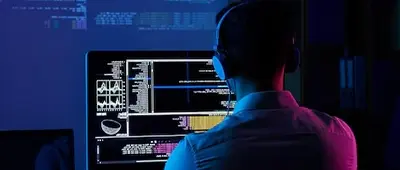





![Best Countries for Immigration from India [Top Choices 2026]](https://d1aeya7jd2fyco.cloudfront.net/blog/Top_Foreign_Countries_Where_You_Can_Migrate.webp)


